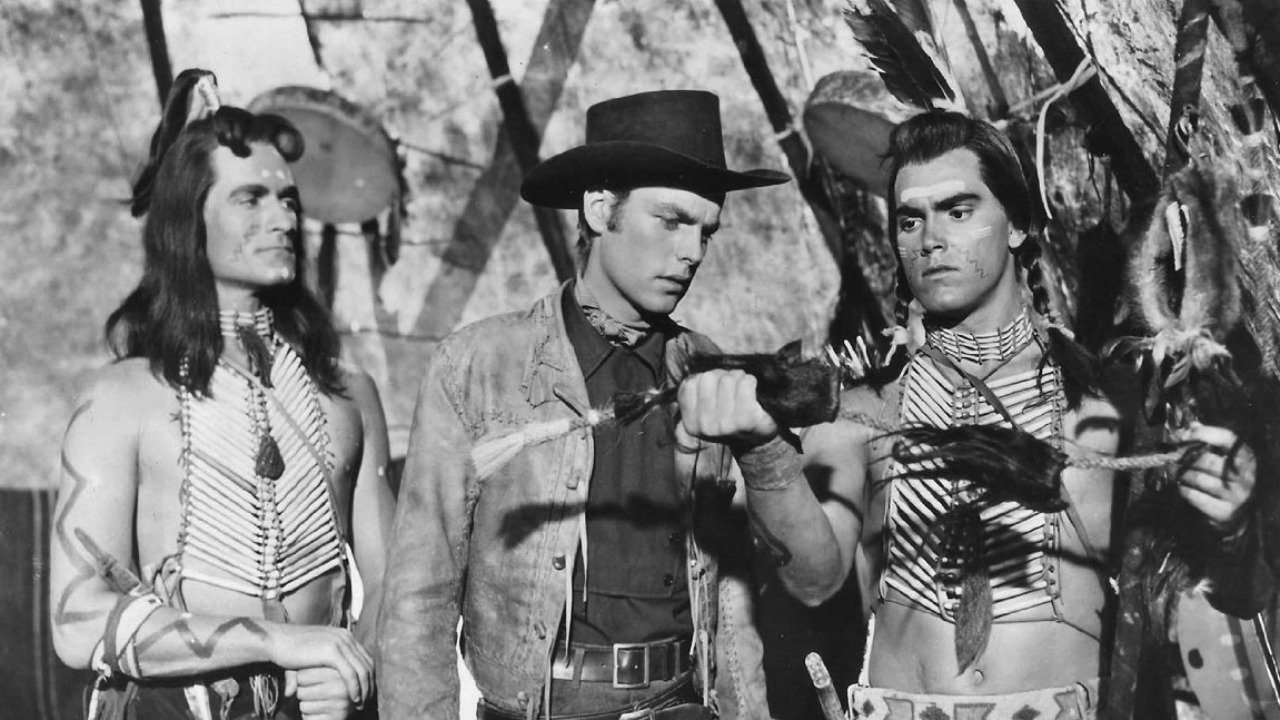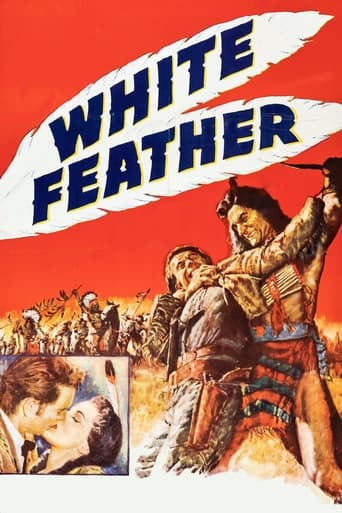Smartorhypo
Highly Overrated But Still Good
Aedonerre
I gave this film a 9 out of 10, because it was exactly what I expected it to be.
Ogosmith
Each character in this movie — down to the smallest one — is an individual rather than a type, prone to spontaneous changes of mood and sometimes amusing outbursts of pettiness or ill humor.
Griff Lees
Very good movie overall, highly recommended. Most of the negative reviews don't have any merit and are all pollitically based. Give this movie a chance at least, and it might give you a different perspective.
David Grothier
I am not that bothered by historical facts when all I need is a good Western to relax with. And this fits the bill perfectly. If I wanted historical accuracy I would go over to the History Channel and then I Would have to think and not be able to relax.Perfect scenery, magnificently depicted Indian camp, great horse riding, good acting all round, even the self critical Mr Lund was perfect for his role.Westerns of today just do not have the old magic.Just as an incidental rider: when as a boy in the Saturday matinée Our gang would always cheer the Calvary, now I have grown up the Indians have my cheers and sympathy. What was done to them will forever be a massive blot on the history of the USA.
rhklwk-1
As a "Western movie" buff, I am surprised that this film is not more familiar to aficionados of the genre. It is a near epic, classical film.Of course, it suffers from the usual defect common to Westerns made in this era: The Native American leads are played by white actors and there isn't adequate time to fully develop all of the characters.Still, it is a magnificent film. It has elements of Shane, which was made several years before, and of The Searchers, which was made a year after.The sweep and the grandeur are very reminiscent of John Ford films. No expense was spared in cinematography, locations, and the number of extras that were employed. Hundreds of Native Americans were employed, including women and children of all ages. The number of mounted cavalry approximate the size of a cavalry regiment. There weren't that many mounted soldiers in John Ford's cavalry trilogy. And, it was all achieved without the aid of computer graphics.The dialog is realistic and the story, itself, is based on a true incident. A young Robert Wagner is very believable and likable in his solid, understated role.This film is enormously enjoyable. I remember seeing it in the 1950s at a drive-in theater, and if only I could do so again!
alexandre michel liberman (tmwest)
I used to see most westerns in the fifties, but for some reason I was unable to see "White Feather". I kept reading reviews about it, though, and basically all of them said the film was good, nothing great, but good. I thought it would be a type of "Broken Arrow" with some variations, so did not go out of my way to see it. Finally I saw it and was enthusiastic about it. No film has shown the agony of Indians which have to move from their land in such a sensitive way. Jeffrey Hunter was a great actor and he proves it in his magnificent performance of Little Dog. The romance between Robert Wagner and Debra Paget makes most of the other films that show the same, pale. But the greatness of the film comes with the last part where Cinemascope has never been better used to show at the same time the army and the Indians and the unexpected final developments. This film did not have James Stewart as an actor, but Robert Wagner did just as well, neither was Anthony Mann or Delmer Daves (who co-wrote the script) the director, but Robert D. Webb did a great job. Don't miss this film, it is one of the all time great westerns.
NewEnglandPat
This film centers around the Cheyenne tribe's move from their homeland in Wyoming to a southern plains territory. The army's task is to keep gold-hungry prospectors out of Indian country until they move to their new location. Robert Wagner is sincere as a surveyor who befriends the Indians but knows that their way of life is over. The picture does not have any cavalry-Indian battles but both sides face off against each other in the film's tense final moments. Jeffrey Hunter is a fierce Cheyenne warrior, and Debra Paget reprises her role in "Broken Arrow" as an Indian maiden. John Lund, Hugh O'Brian, and Emile Meyer, old hands at westerns, are all good, as are the colorful Mexican locations. Hugo Friedhofer's pulsating score is a plus, although some cues from "Broken Arrow" echo here and there.

